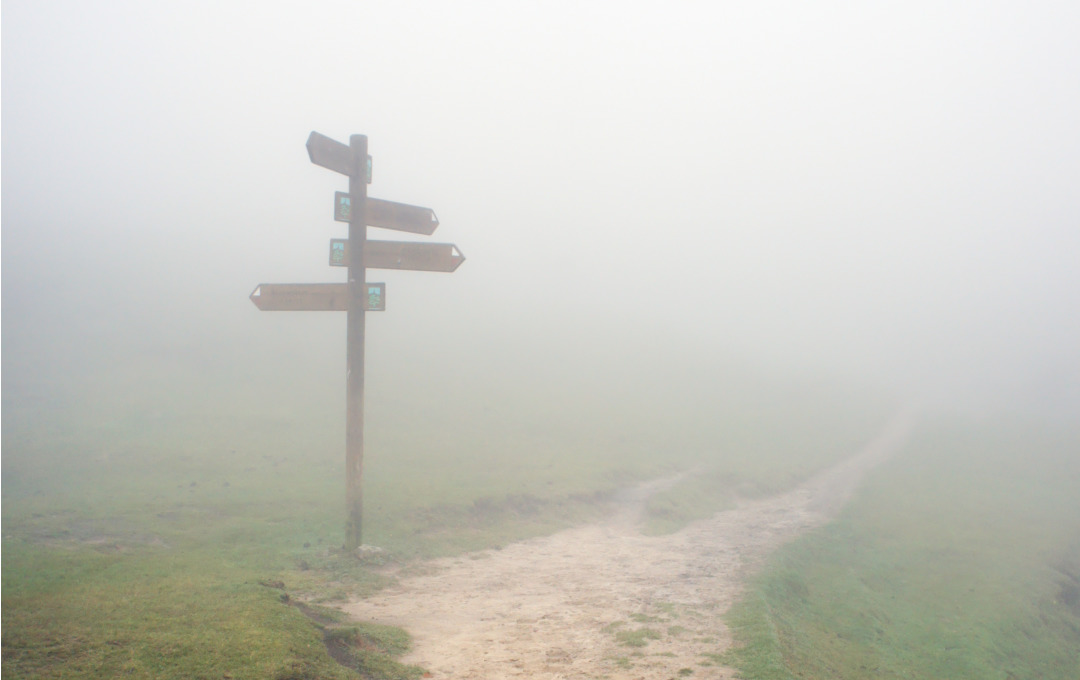The Fallacy of "Choice"

Marketing and Communications manager Jade Skinner reflects on what choice means, and how we understand the choices we make.
“What is it you do for work?” is a question I come across a lot in my life, whether it’s small talk at an event, or part of the ritual of finding a new hairdresser, local coffee shop and so on. I am fortunate that my job often invites extra conversation,— people want to understand what I do, and more importantly who I do it for.
These conversations often throw up a lot of assumptions that people hold about the arena I work in; homelessness. Often the word ‘choice’ comes up and this year in particular, this word has come to mean something slightly different to each of us.
At Cyrenians, I often have cause to think about choice, and subsequently, what happens when there isn’t a whole lot of it.
We often think about choice as a positive thing – for example, if you have a choice, you have options, right? Or perhaps we see it as something to be fiercely defended – our right to choose. However we look at it, we often overlook how complex it can be, that not every decision is black and white, with one option the right one and the other the wrong.
Homelessness is complex. There are many routes into homelessness and, I've found, many misconceptions about what homelessness is and why it happens. When I talk about my job, I often reach a point in the conversation where someone will say to me ‘yeah, but it’s a choice isn’t it?’
For some, that may be true. But what was the alternative choice? To stay somewhere unsafe? To pay the rent instead of buying food for your hungry children? To pay the electric bill to keep the fridge running instead of the gas bill that keeps the bedroom warm? Those aren’t really choices, they’re ultimatums.
And what about the choices we make that feel insignificant at the time, but spiral out of control and away from us faster than we can fathom? Our decisions can feel short-term, but their impacts can create ripples through our lives that we feel the effects of years later.
I’d argue that when our choices are about picking between risks to our safety, our health or our survival, there is no choice at all, there is only right now. What do you need right now? Our societal systems aren’t set up to manage this sort of short-term thinking, but all too often circumstances force us to live moment to moment. Short-term thinking doesn’t pay the rent but may feed a family tonight, it may feed a family tonight but have nothing in for breakfast, and on and on go the decisions that feel like dead ends.
There is very little in life that is as black and white as we attempt to make these choices seem. When we choose to be safe right now we cannot guarantee that we will also be safe later – there's another decision to be made, another option to be faced with, and those options can become harder, less palatable, more difficult to understand from a warm home, surrounded by loved ones.
At Cyrenians, we build trusted relationships with those we support. Our work is people-centred - we see the individual, not their problems or the decisions that led them to us. What this means is that we open up the space for them to have more positive choices, and to make those choices safely. People choose how they work with us, and we support them to choose where they’re going next.
Choice is powerful, but we only really notice its power when we start to lose it. So, if we have to make a choice, I’d ask that we always choose compassion, that we choose empathy, and that we choose to see the value in each other as humans first, not our own assumptions.